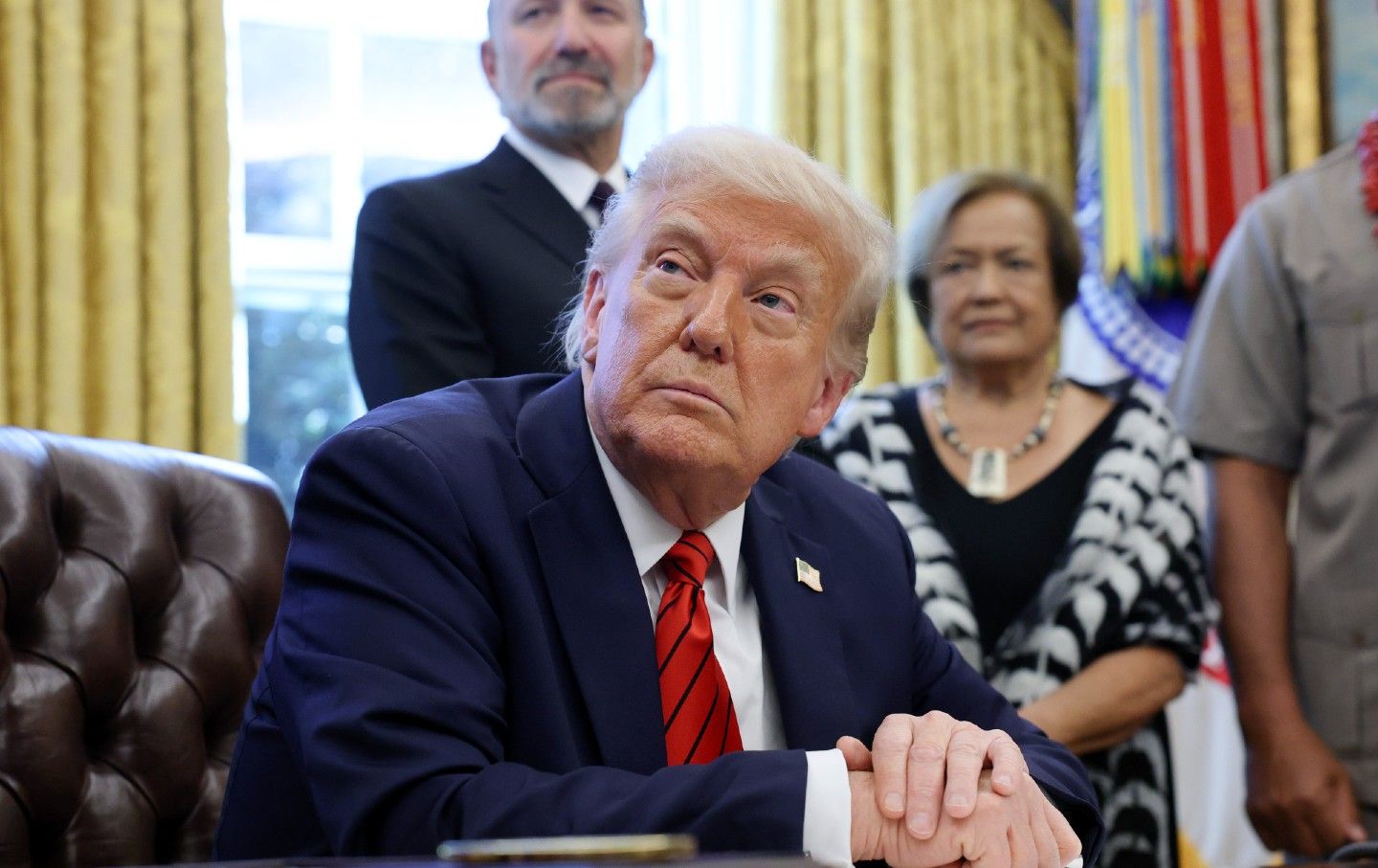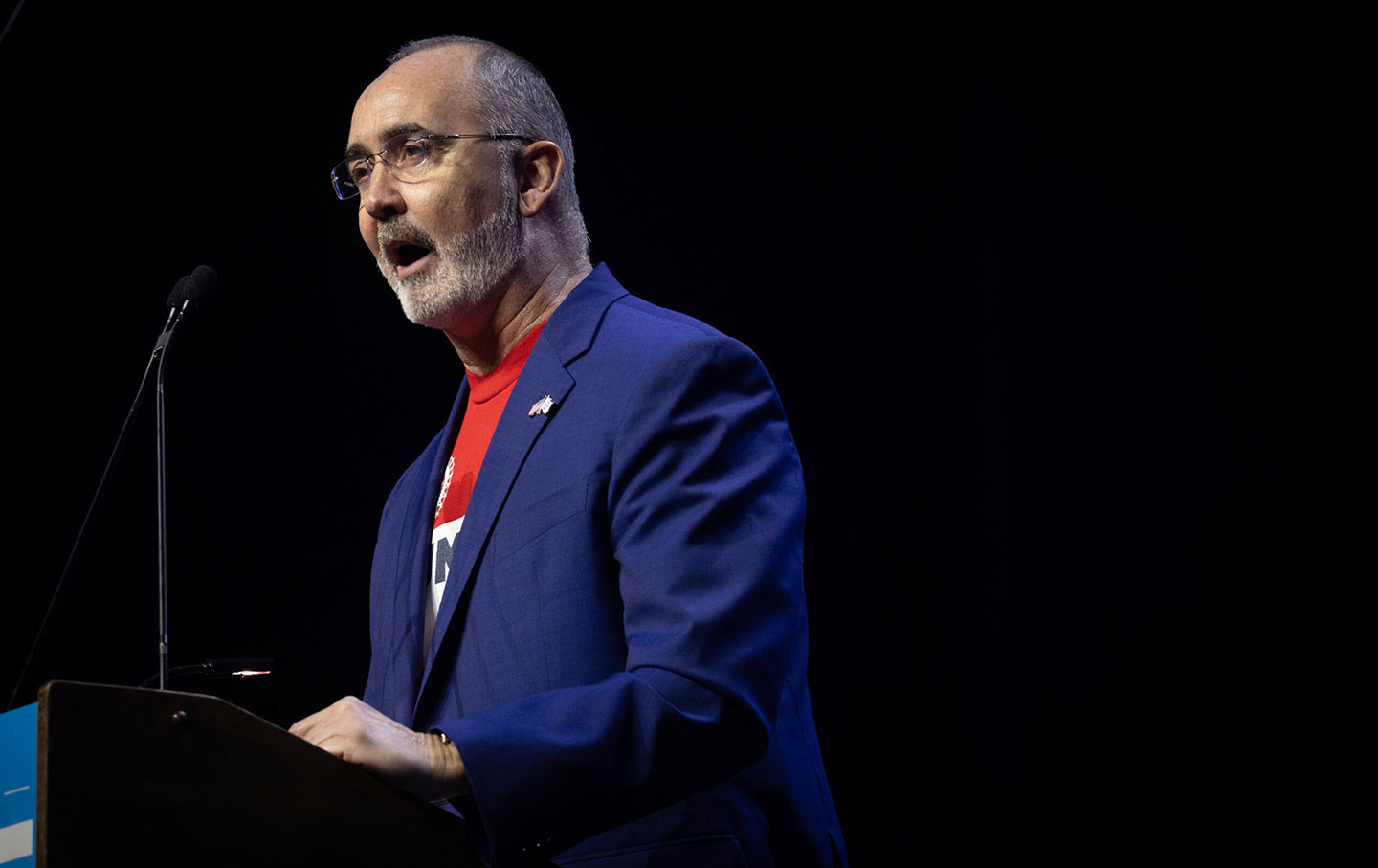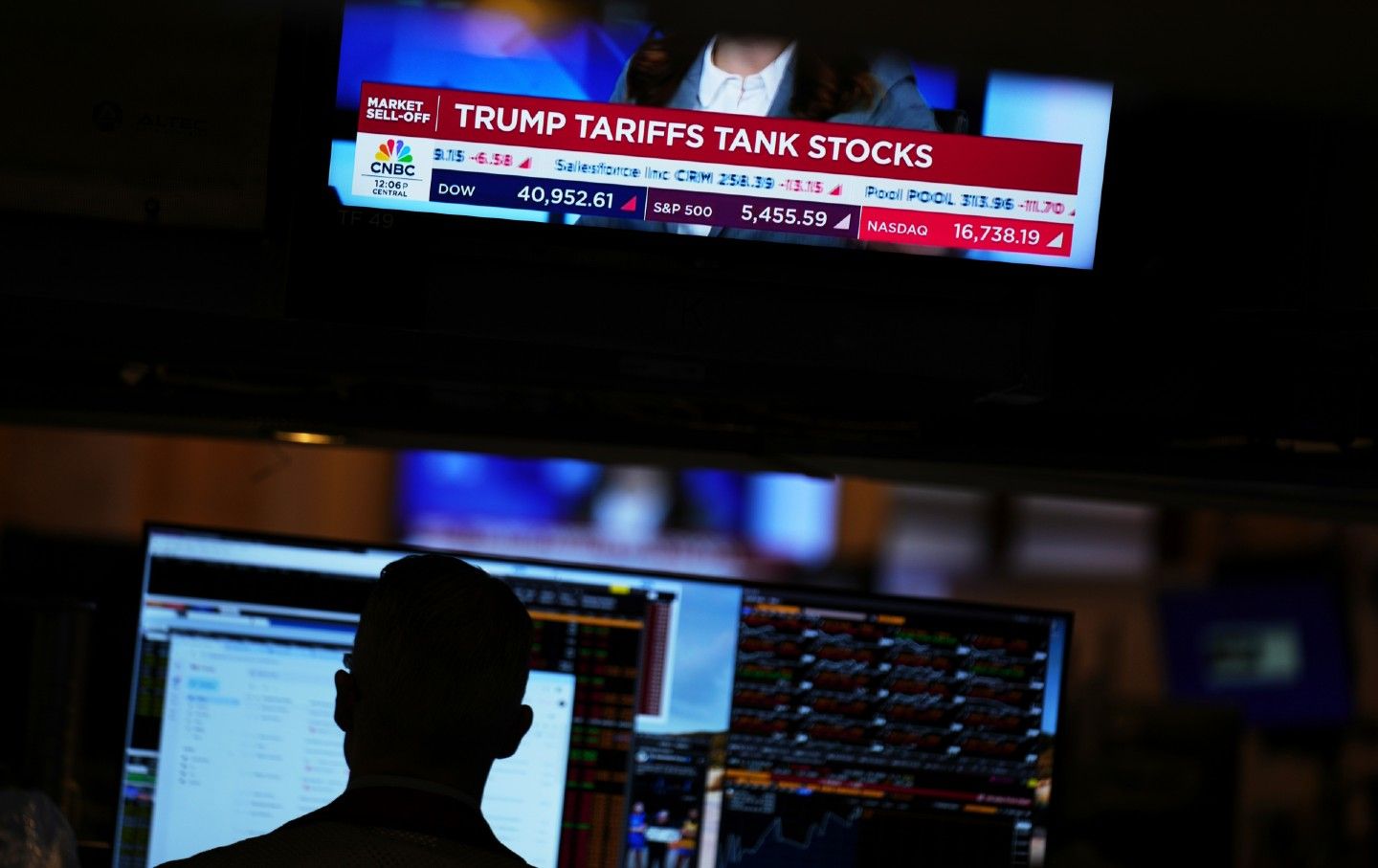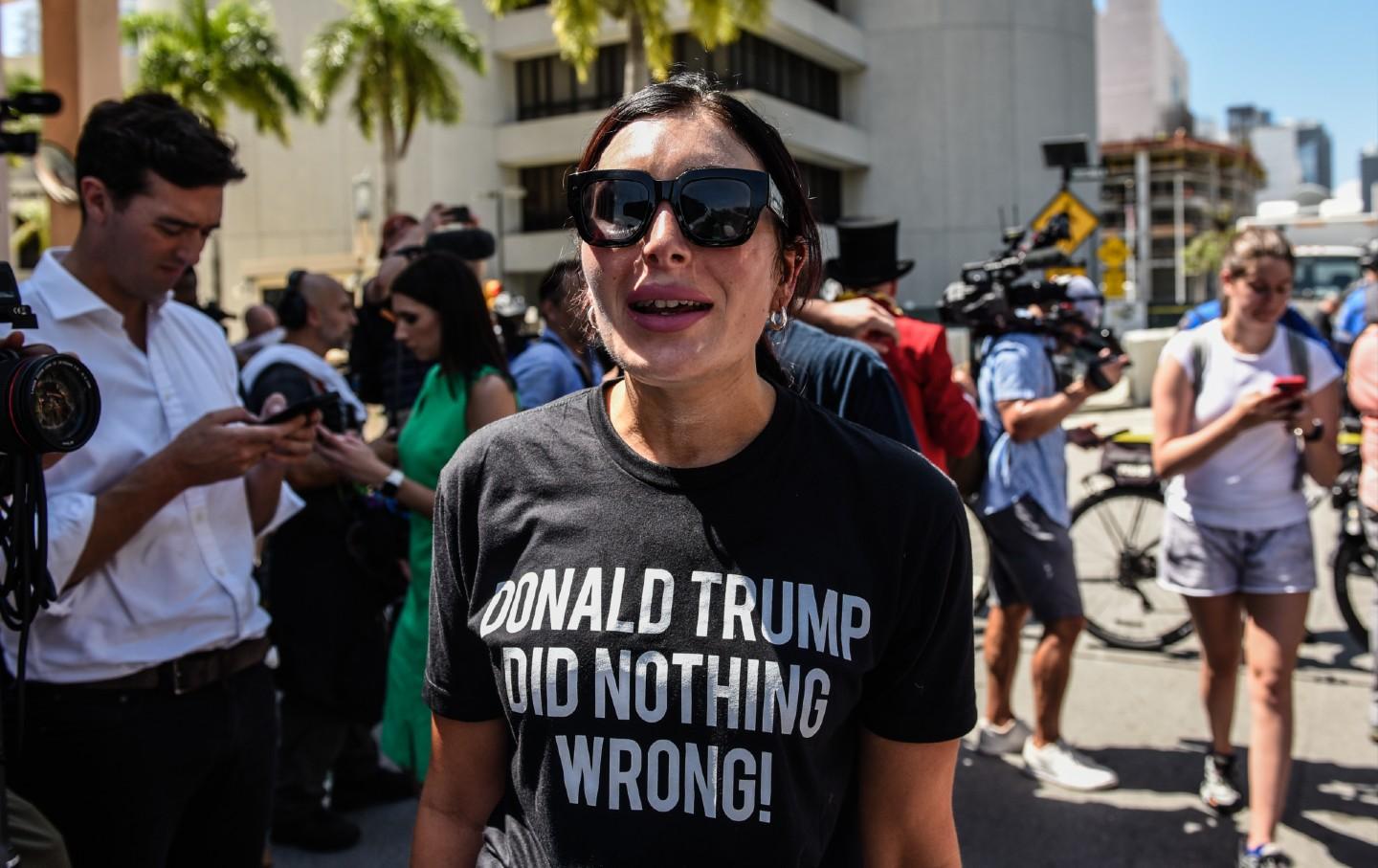Donald Trump Is Stealing the Kennedy Brand
Does the Kennedy name stand for liberalism—or oligarchy?
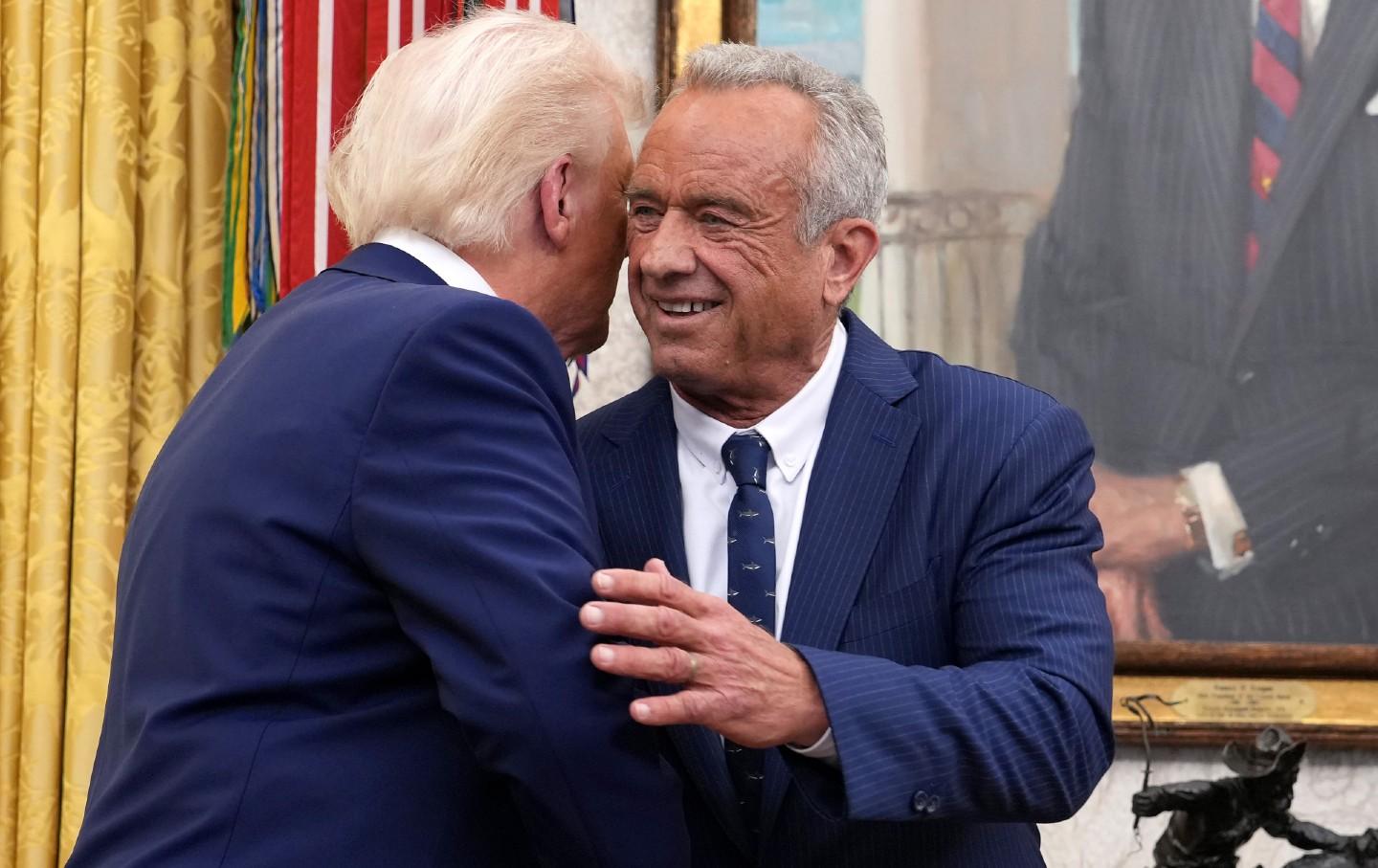
With Elon Musk acting as the de facto commander in chief, even holding high-level photo ops with foreign leaders like Indian Prime Minister Narendra Modi, the nominal president Donald Trump has a lot of time on his hands. Not surprisingly, since he is a second-term president, Trump has been turning his energy toward building a legacy. But with his real estate developer’s instincts for acquiring and refurbishing old properties, Trump has decided that rather than start from scratch there is a valuable brand he can easily take over and make his own: the fabled name of the Kennedy family.
Over the last few weeks, Trump has gone out of his way to appropriate the Kennedy name as an offshoot of his own brand. On Thursday Robert F. Kennedy Jr. was confirmed by the Senate as health secretary in a nearly party-line vote (all Democrats voted against the nomination and the only Republican to vote no was Mitch McConnell). The partisan divide is striking, since RFK Jr. is now the most prominent political leader of a famously Democratic family, the son of the late senator Robert F. Kennedy and the nephew of the late president John F. Kennedy and the late senator Edward Kennedy. Indeed, until last year, RFK Jr. was himself an anti-Trump Democrat.
Earlier this week, Trump made himself chairman of the John F. Kennedy Center for the Performing Arts in Washington, created to celebrate the legacy of JFK, as part of a larger partisan purge of the organization. Trump kicked out the Democrats from the existing bipartisan board and replaced them with cronies and lapdogs. As The New York Times reports,
While the board had been roughly split between Biden and Trump appointees until recently, it is now entirely made up of appointees of Mr. Trump. The new board includes a litany of Trump loyalists, including the president’s chief of staff, Susie Wiles; Dan Scavino, a longtime Trump aide; and Usha Vance, the wife of Vice President JD Vance.
On January 30, Trump signed an executive order calling for the CIA and the FBI to declassify all remaining documents on the assassination of JFK, RFK, and Martin Luther King Jr.
Taken together, these three moves add up to a concerted attempt by Trump to claim the Kennedy mantle. It’s hardly a surprise that Trump, with his love of chintz and spurious glamour, wants the old Kennedy magic to rub off on him. The violent deaths of JFK and RFK have made them sacred memories to many Americans across party lines. JFK continues to top Gallup approval polls of modern presidents, with 90 percent of the population viewing him favorably—a full 21 points ahead of the second-place Ronald Reagan.
Politicians of all stripes have long tried to claim they are continuing the Kennedy legacy. Bill Clinton and Nancy Pelosi have not been shy about sharing photos recording their youthful encounters with JFK. But right-wing Republicans play the same game, often claiming that tax cuts under JFK were precursors to the supply-side economics of Ronald Reagan, or that JFK’s militant anticommunism made him a founding father of neoconservativism.
Aside from RFK Jr., the other members of the Kennedy family remain liberal Democrats and have tried to resist the Trumpian appropriation of the clan’s legacy. The family has denounced RFK Jr.’s endorsement of Trump and the transformation of the Kennedy Center into a partisan patronage machine.
Yet it’s not clear that the Kennedy family has any exclusive claim on the Kennedy legacy, which is large, complex, and woven into American history. One reason Trump is able to make a play to take over the Kennedy brand is that the family itself, after the death of Edward Kennedy in 2009, became much less prominent as icons of American political liberalism (though Caroline Kennedy Schlossberg, JFK’s daughter, served as ambassador to Japan during the Obama administration and was appointed ambassador to Australia by President Biden). In 2020, the unthinkable happened: Joseph Kennedy III, RFK’s grandson, was defeated in his bid to win the Massachusetts Democratic Senate nomination. A Kennedy losing in Massachusetts would have once staggered the mind, but the family has clearly lost its political juice.
The Kennedy name now belongs more to mythology than to electoral politics, which has made possible both the adventurism of RFK Jr. and the cynical appropriation of the brand by Trump.
In truth, there is no coherent political content to Kennedyism. The family has been prominent on the national stage for over a century, during which prominent members took all sorts of conflicting stances. Joseph Kennedy, the patriarch, was a conservative Democrat who opposed the New Deal. He was also an America First nationalist, which certainly suggests an affinity for Trumpism. JFK was a Cold War liberal, a position that makes him a plausible ancestor to many strands of America politics: Do we associate him with the warmongering of the Bay of Pigs—or the restraint of his calls for nuclear negotiations? Is his legacy the Civil Rights Act, brought to fruition in his name after his death—or the wiretapping of Dr. King? RFK and Edward Kennedy turned against the Vietnam War—which their elder brother helped ramp up. Which part of this legacy is the true one?
The disturbing thing about Trump’s appropriation is that he can in fact plausible lay claim to part of JFK’s legacy. JFK was a pioneer in turning wealth and media fame into political capital. JFK sold himself as an outsider not controlled by elites and willing to buck the bureaucracy of the New Deal—a political profile that more explicitly right-wing figures such as Trump can easily adopt as their own.
The historian Garry Wills, in his study The Kennedy Imprisonment (1982), rightly emphasizes that JFK’s brand of politics was deeply personal, based not on ideology but on charisma, with policies executed by a band of loyalists (including family members). Again, the commonality with Trump is inescapable. Describing Kennedy’s mode of governance, Wills observes:
Kennedy concluded that, if outright confrontation failed, then circumvention of the process must be relied on—executive orders instead of legislation, extensions of authority for the team players, isolation of the less responsive parts of government. Let the uncooperative agencies atrophy, while a few vigorous men took on more and more general tasks…. More important is the extent to which he viewed his own administration as a raid of mobile “outsiders” on the settled government of America. He had assembled a hit-and-run team to cut through enemy resistance, go outside channels, forgo meetings, subvert committees, dismantle structures. Democracies need such strong (and often secret) leadership by an enlightened few pitted against the many dullards of the bureaucracy.
Popular
“swipe left below to view more authors”Swipe →This passage might almost serve as a blueprint for Elon Musk’s current subversion of the federal administrative state.
All of this is not to suggest that JFK and Trump are the same. Rather, it is a reminder that the Kennedy legacy is so mixed that it offers no real basis for resisting Trumpism. We can point to the good things JFK and other Kennedys stood for—notably the expansion of the welfare state and civil rights protection—but these are good in and of themselves, not because one particular wealthy family championed them.
To the extent that the Kennedy name remains relevant, it is as a warning. The Kennedys are a reminder of the dangers of elite impunity, of wealthy figures who are protected from the consequences of their actions by a deferential polity and a praetorian guard of cronies. Trump embodies the worst aspects of the Kennedy legacy and reminds us that America’s problems extend beyond the partisan misdeeds of individual presidents.
The Kennedy name is also a stand-in for oligarchy, which is the root problem with Trumpism.
Correction: A former version of this article misidentified Joseph Kennedy III’s grandfather.
Hold the powerful to account by supporting The Nation
The chaos and cruelty of the Trump administration reaches new lows each week.
Trump’s catastrophic “Liberation Day” has wreaked havoc on the world economy and set up yet another constitutional crisis at home. Plainclothes officers continue to abduct university students off the streets. So-called “enemy aliens” are flown abroad to a mega prison against the orders of the courts. And Signalgate promises to be the first of many incompetence scandals that expose the brutal violence at the core of the American empire.
At a time when elite universities, powerful law firms, and influential media outlets are capitulating to Trump’s intimidation, The Nation is more determined than ever before to hold the powerful to account.
In just the last month, we’ve published reporting on how Trump outsources his mass deportation agenda to other countries, exposed the administration’s appeal to obscure laws to carry out its repressive agenda, and amplified the voices of brave student activists targeted by universities.
We also continue to tell the stories of those who fight back against Trump and Musk, whether on the streets in growing protest movements, in town halls across the country, or in critical state elections—like Wisconsin’s recent state Supreme Court race—that provide a model for resisting Trumpism and prove that Musk can’t buy our democracy.
This is the journalism that matters in 2025. But we can’t do this without you. As a reader-supported publication, we rely on the support of generous donors. Please, help make our essential independent journalism possible with a donation today.
In solidarity,
The Editors
The Nation


